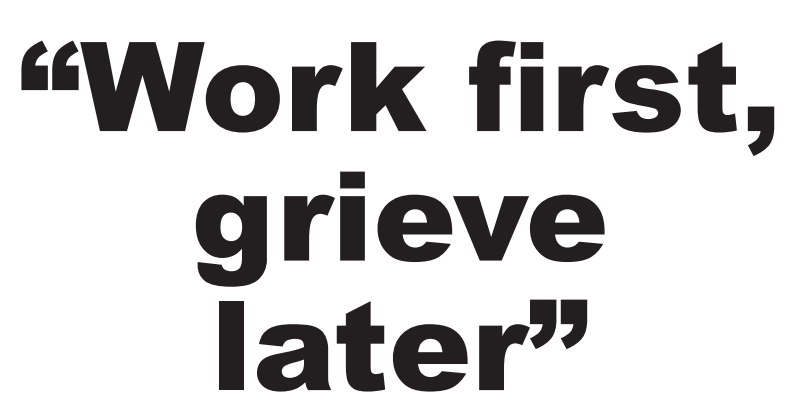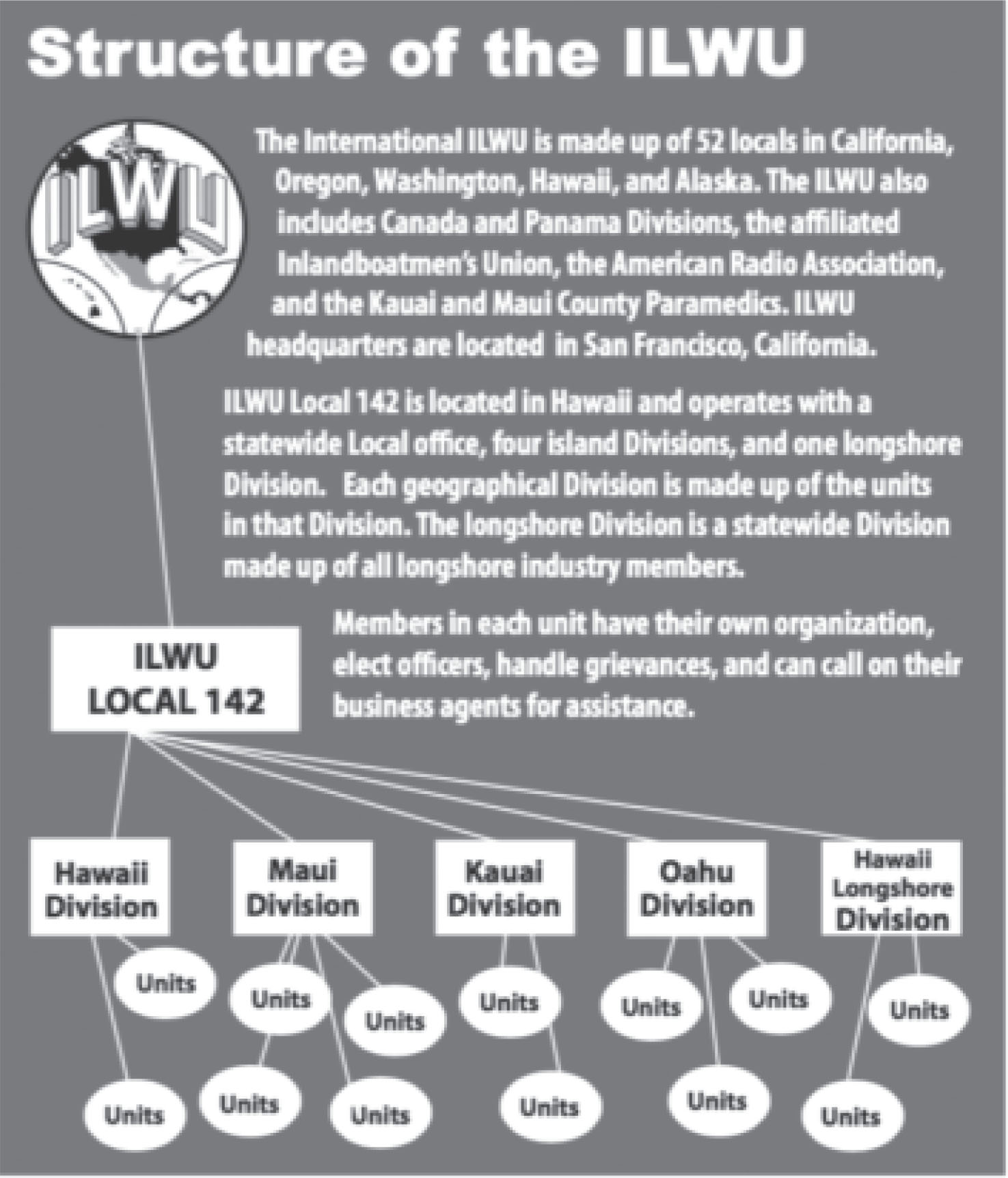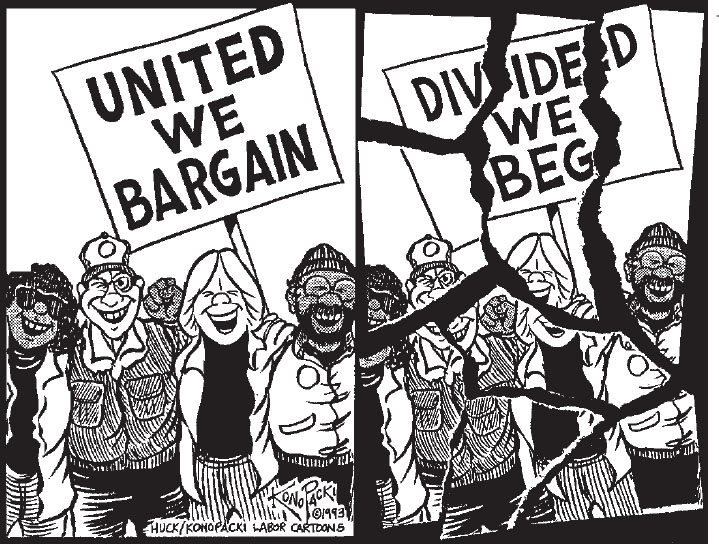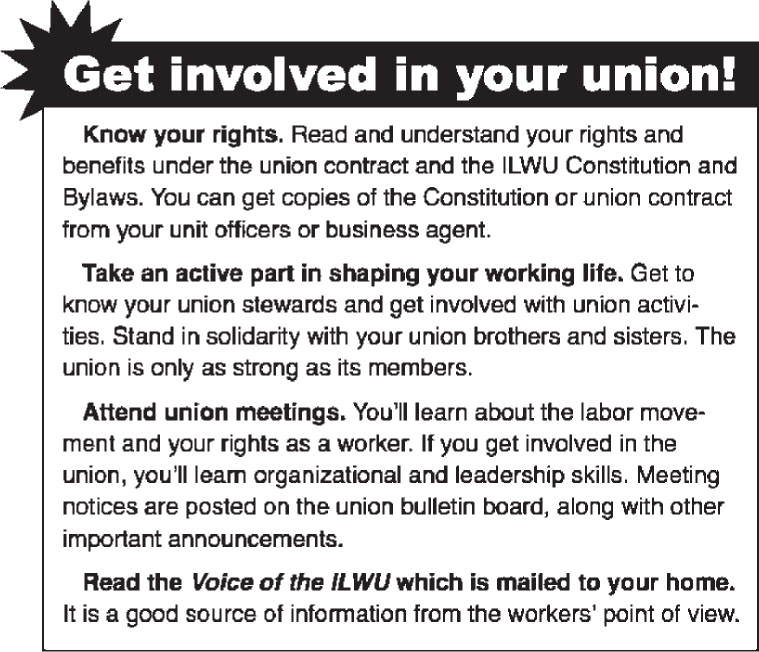What do the letters stand for?
The letters I.L.W.U. stand for International Longshore and Warehouse Union, a union created in 1934 when longshore and warehouse workers on the West Coast of the United States merged to form a single union. In 1937, longshore workers in Hawaii chose to join up with the ILWU, because it was a democratic union that stood for racial equality within its membership. This was important to the Hawaii members who were mostly of Hawaiian and Asian ancestry.
Within a few years, tens of thousands of sugar and pineapple workers also joined the ILWU, attracted by the union’s program of uniting all ethnic groups and its reputation as a democratic union run by the membership. Before the ILWU, unions in Hawaii organized workers along craft or ethnic lines. This divided the working class, and such unions were no match against the powerful employer group that controlled the islands.
With the ILWU, workers finally had an organization with the strength and solidarity that could match the power of the employers. ILWU members won job security and improvements in wages and benefits. With their jobs protected, ILWU members registered to vote, got involved in community affairs, and elected candidates who would work for legislation to benefit working people. This opened the way for Hawaii to develop into a progressive, democratic society.
Rights and responsibilities of ILWU membership
As a member of a union, you have rights on the job. With the ILWU you have the combined strength and experience of the union on your side. Here’s what to do as a union member on the job!
Members should be advised to “work first and grieve later.”
Every ILWU member should be taught to see a steward or unit officer first about problems or concerns on the job. They should be advised never to try to settle their problems with management by themselves.
There are four reasons for this:
1) the member will not have the strength of the union behind them;
2) the member may make a deal with management that could hurt other members or even be a violation of the contract;
3) the member is not trained to handle the grievance properly and may miss time limits and make other mistakes; and
4) it weakens the union because management knows that workers who bypass the union are not strong union members and will use these workers to divide the union.
Know your rights
Members have the right to ask for a union representive when management calls them into a meeting or asks them questions which could lead to disciplinary action. This includes a phone call from the boss. This is called “Weingarten Rights.


Once the member asks for a union representative, the company should stop the discussion, and the member should not answer any more questions. The company can call any steward available -- the member cannot insist on a particular unit officer or business agent. When a union steward arrives, the member should consult with the steward first, but the company can continue the questioning.



Again, members should be advised to “work first and grieve later.” This means a member should obey their supervisor’s order and do the work, even if they believe it is a violation of the contract or unfair treatment. They could politely inform their supervisor that they will be seeing their union steward about the matter.
Follow this “work first and grieve later” UNLESS...
There are only three exceptions to the “work first and grieve later.”
If the job is 1. dangerously unsafe, 2. illegal, or 3. immoral.
In any of these cases, you should protest to the boss and offer to do something else. You still risk being disciplined for insubordination, but if the job was really unsafe, illegal, or immoral, the discipline will probably not be upheld.
The union contract isn’t enforced by the steward alone or by the business agent. The individual member is just as responsible as anyone else for seeing that the contract is enforced. In fact, unless members know their rights under the contract, the officers and stewards cannot possibly do their job.
